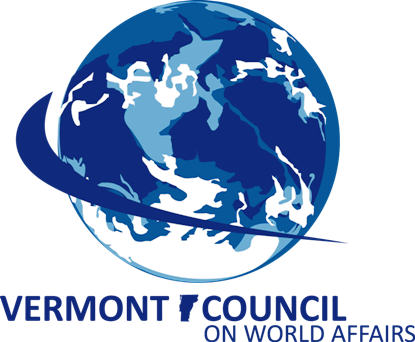Elections 2020 Initiative: Debbie Ingram
State Senator representing the Chittenden District since 2017, Debbie Ingram of Williston, VT will be running in the Democratic primaries for Lieutenant Governor of Vermont this August 11, 2020.
2020 Elections Initiative
The VCWA, an independent, non-partisan, and apolitical non-profit, is working to raise awareness, education, and voter participation in the upcoming primaries through our 2020 Elections Initiative. The views and opinions expressed are those of the candidate and do not necessarily reflect the VCWA’s position, nor is this initiative an endorsement for any candidate
As an organization we want to encourage citizens of all ages and backgrounds to make their voices heard by voting in the August 11th primaries. As a result, we asked Governor and Lieutenant Governor candidates four interview questions relating to leadership style, platform, and their vision for Vermont. Our objective is to help future voters feel confident and secure in the votes they cast. The questions we selected will provide voters with a well rounded understanding of each candidate.
Debbie Ingram
Running for Lieutenant Governor
Debbie Ingram
Democrat
How has a failure, or apparent failure, set you up for later success? Do you have a“favorite failure”?
Certainly the biggest and most public failure I have ever had was getting a DUI while serving as state senator. I am a recovering alcoholic, and the DUI occurred during a relapse. It was humiliating and frightening – I am grateful I did not hurt anyone in the car crash that I had, and my mug shot and police video were shown relentlessly by the press. I took responsibility for my behavior immediately, pled guilty, and completed my sentence. I also apologized to the public and redoubled my efforts at recovery to prevent any future relapses. Today I have a strong recovery, with close ties to my support network, thorough working of a 12-step program, and a deepened spiritual life. I have been honest and open about my recovery in an attempt to help remove the stigma of the disease of alcoholism and offer support to the thousands of Vermonters and their loved ones who deal with the disease. I believe my strength in coming through that time, as well as my willingness to take responsibility for my actions to be honest about myself, has been an asset in public service and has hopefully helped many across the state.
What strategies have you used to respond to diversity and equity challenges in the past? How will you apply these strategies to engage with the Black Lives Matter movement in Vermont?
I have been a champion for social and racial justice with a documented impact for more than 13 years. As Executive Director of a statewide non-profit called Vermont Interfaith Action, which brings together congregations of many faiths to try to effect systemic change around social justice issues, I have had the opportunity to engage in many workshops, seminars, small group discussions, and other activities to understand my own white privilege and become motivated to dismantle systemic racism. These personal realizations have empowered me to reach out to my brown and black siblings to work with them to introduce legislation to make Indigenous Peoples’ Day permanent and the constitutional amendment to clarify the prohibition against slavery. I have championed the creation of the Racial Equity Panel and Executive Director and the Ethnic Studies working group for education. I have led on pressing for better race data collection in law enforcement and regarding COVID cases.
I will continue to meet with people of color individually and through advocacy groups to champion further legislation that represents the ideas and views of those in the Black Lives Matter movement and other aspects of the movement for racial justice. Their input must be central to new proposals moving forward – “nothing about us without us” is a cornerstone of my strategy as I work collaboratively to include in future decision-making those who have been marginalized.
In the last five years, what new belief, behavior, or habit has most improved your life? How will you apply this to strengthen your vision as the Lieutenant Governor or Governor of Vermont?
The tenets of 12-step programs are central to the way I live my life. Being honest with myself and understanding who I truly am, taking responsibility for my actions and being willing to make amends to others when I am wrong, maintaining my spiritual relationship with a higher power and humility in how I relate to others – these are the cornerstones of a 12-step program, and I practice them in all my affairs, every day.
I have brought these tenets to my work as a state senator, and would surely apply them to my role as Lt. Governor. Essentially they are about being the most honorable, respectful, humble, compassionate, and just human being that I can be, and to lead others in ways that reflect these virtues and values. I believe, especially after the leadership we have seen at the national level, people are hungry for this kind of leadership and example.
VCWA’s motto is, "Bringing Vermont to the world and the world to Vermont". What do you believe Vermont’s primary role is in engaging in an interconnected world? What can Vermont contribute to the world that other states or countries cannot?
I believe Vermont’s primary role is to bring our respect for individuals and live-and-let-live attitude to the rest of the country and the world. These attitudes have led to Vermont being a home for same-sex couples and for refugees, for those making their living on the land and for city-dwellers. In the world today, we need to cultivate respect for people of different races, sexes, sexual orientations, immigration statuses, economic and educational backgrounds, and political opinions and to build communities in which diverse people can live side-by-side. I believe that with our unique culture and heritage, Vermont can bring these practices to the rest of the country and the world.

